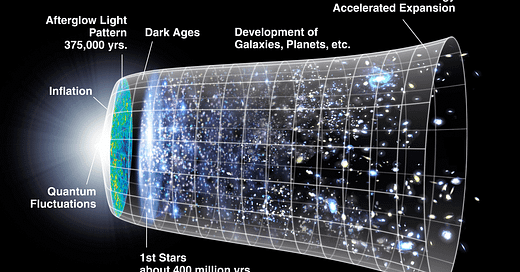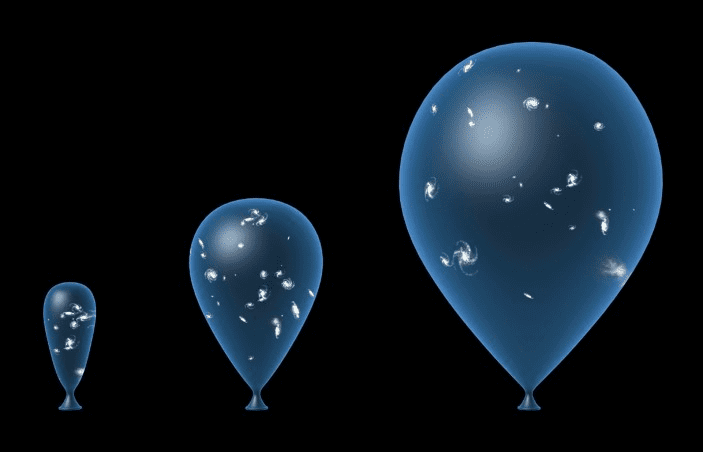Q&A: Black holes, wormholes, and the Beginning of the universe
March 9, 2024 Issue #4
1: DO YOU THINK OUR UNIVERSE COMES FROM AND FORMS IN A BLACK HOLE FROM ANOTHER UNIVERSE?
That is a fascinating question. It was actually proposed by the popular physicist we know as Stephen Hawking. What it refers to is theoretically known as Black Hole Cosmology.
But how does such a strange idea even originate?
The two most popular and most well-understood theories are quantum mechanics, describing the behaviour of subatomic particles, and general relativity, which describes the macro cosmos. One problem with these two theories is that they do not resonate with each other, meaning that it appears to be impossible to suggest a concept that combines these two theories.
Similar to string theory, Black Hole Cosmology is one theory that tries to combine quantum mechanics and general relativity. Some physicists have proposed that black holes may serve as bridges or gateways to other regions of space-time, known as wormholes. We also know that the universe must have had a start known as the Big Bang, where space-time rapidly expanded and created what we now call the universe.
The above visualisation shows how the universe must have aged over time. But what happens if we turn the clock backwards? If entropy reverses, causing the arrow of time to flow backwards, we would end up in a densely compressed condition of space-time with infinite density. Sounds familiar?
Similar to black holes, our universe, at some point, must have had a singularity that rapidly expanded due to quantum effects.
This could genuinely mean that the universe started as a black hole, and expanded rapidly, only to be fundamentally crushed together to provide the conditions for a new universe. A concept like this is known as the Big Bounce universe:
One universe comes from the death of another.
I believe that this could be true, but for now, there hasn’t been real evidence of this phenomenon.
Still, one important question is where our universe came from and where it is going, and this provides a genuine answer to this exact question.
2. WHAT DO YOU THINK ABOUT THE THEORY OF BLACK HOLES LEADING TO WHITE HOLES AS A WORMHOLE?
Another fabulous question which is perfectly linked to what we discussed earlier. So, the theory you’re referring to involves the concept of black holes and white holes being connected through a wormhole, which is often discussed in the context of Einstein's general theory of relativity.
Black Holes are conditions in space-time where the gravitational pull is so strong that nothing, not even light, can escape from it. White Holes, on the other hand, are a hypothetical region of space-time that emits energy and matter, reversing the effect of black holes.
A connection between the two would create a wormhole, which makes use of an extra dimension to create a shortcut through spacetime:
It is tempting to say that there must be a connection like this present somewhere in the universe. And theoretical work proves that wormholes are indeed possible. However, they are predicted to be incredibly unstable. Additionally, the presence of white holes has yet to be observed, which creates even more doubt about this theory.
Still, I think that wormholes exist. It would be strange if one of the best theories of all time — general relativity — a theory that has proved to be correct in nearly every little of its postulations, would stop being true at something so logical. Wormholes are something that shows up in solutions to Einstein field equations, and I am certain, even though they are unstable, that they exist.
3. IS THE UNIVERSE GETTING BIGGER AS IT EXPANDS? IF SO, WHAT DID IT EXPAND INTO?
The universe doesn’t expand into anything because it is everything.
Ever since the Big Bang, the radical push towards an inflating universe about 13.8 billion years ago, the universe has expanded.
A common misunderstanding of this phenomenon is that there is some sort of infinite empty space which the universe expands into. But that’s not true.
The universe, which literally comes from the Latin words unus and verses which can together be translated as “the whole”, is already everything.
What actually happens is that the space between galaxies expands into itself, increasing the size of the universe over time.
It’s similar to blowing up a balloon. The balloon increases in size inward, not outward. Hence, the galaxies inside the balloon seem to drift apart.
A pretty awesome consequence of this is that we can easily imagine what happens when we turn the clock around and have a look at the past. The universe at some point must have been crunched together at a singular point with infinite density and massive space-time distortion, from which a rapid expansion must have occurred. This is what we refer to as the Big Bang.
But — a big but indeed — the expanding universe doesn’t solve the reason for its expansion. We have no full explanation for why the universe expands into itself, or why it even started to expand at all.
What’s before the Big Bang is a question we can’t even answer because the Big Bang literally created time. The expansion of the universe is still a rather complex topic, which we try to understand a little better every day.
If you have enjoyed this episode of COSMIC WEEKLY and you don't want to miss out on any future episodes consider subscribing for FREE.
Thanks again and I'll see you soon.
Victor (@observethecosmos)
🎟 Want to advertise on COSMIC WEEKLY? → Send an E-Mail
Check out some of my social media pages to learn more about math, science and astronomy:
🎬:Youtube







